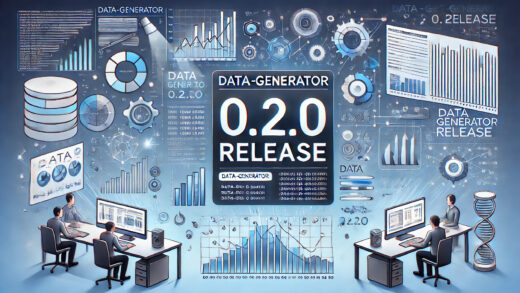Updates and Enhancements in Test-Frame 0.2.0 Since Alpha Release
Since the 0.1.0-alpha2 release, Test-Frame has undergone significant enhancements, introducing new features that improve the ease and efficiency of testing Kubernetes deployments and operators. This blog post highlights the critical updates and new functionalities added to Test-Frame, emphasizing how these changes can benefit developers during testing.
Enhanced Kubernetes Resource Management
One of the significant improvements is the enhancement of the KubeResourceManager. This feature now ensures more efficient management of Kubernetes resources during tests. Resources created during the tests are automatically cleaned up, preventing leftover resources from cluttering the environment and ensuring a cleaner, more streamlined testing process.
Integration with Fabric8 Kubernetes and CMD Clients
Test-Frame now integrates seamlessly with the Fabric8 Kubernetes client and CMD client. These clients are initialized based on configuration files or environment variables, making it easier for developers to connect and interact with different Kubernetes clusters. This integration simplifies setting up and managing Kubernetes environments for testing.
Advanced Metrics Collection
The introduction of the MetricsCollector is another significant update. This feature allows for efficient collection and processing of metrics from Kubernetes pods. Metrics are crucial for performance monitoring and troubleshooting, and this new collector provides developers with the tools they need to gather detailed performance data from their Kubernetes applications.
Improved Logging Capabilities
The logging functionality in Test-Frame has also been significantly enhanced. The LogCollector now offers more detailed logs from pods, including YAML descriptions of specified resources. This improvement makes it easier for developers to understand the state of their applications and troubleshoot issues, providing greater transparency and insight into the testing process.
Utility and Tweaks for Better Interaction
Various tweaks and utility enhancements have improved interaction with Kubernetes clusters. These changes simplify complex tasks, making it easier for developers to manage their Kubernetes environments and run tests efficiently.
New Features in 0.2.0
The 0.2.0 release introduced several new features and enhancements:
-
Advanced Resource Management:
- Improved capabilities for managing Kubernetes resources during tests, including better handling of test dependencies and automatic cleanup.
-
Extended Metrics and Logging:
- Additional features in the MetricsCollector and LogCollector provide more granular control and detailed insights into the Kubernetes environment and test execution.
-
Support for New Kubernetes Features:
- Compatibility updates to support the latest Kubernetes features and APIs, ensuring Test-Frame remains relevant and up-to-date with the latest developments in the Kubernetes ecosystem.
Community and Adoption
Test-Frame has seen increased adoption by major projects such as OpenDataHub, Strimzi Kafka Operator, and Debezium Operator. This growing community highlights the library’s robustness and utility in real-world scenarios, demonstrating its effectiveness in simplifying Kubernetes testing processes.
Conclusion
The updates and new features in the Test-Frame since the 0.1.0-alpha2 release reflect a commitment to enhancing the testing experience for Kubernetes deployments and operators. With improved resource management, advanced metrics collection, better logging, and new utilities, Test-Frame continues to provide developers with powerful tools for efficient and effective testing.
For more detailed documentation and examples, visit the GitHub repository.



